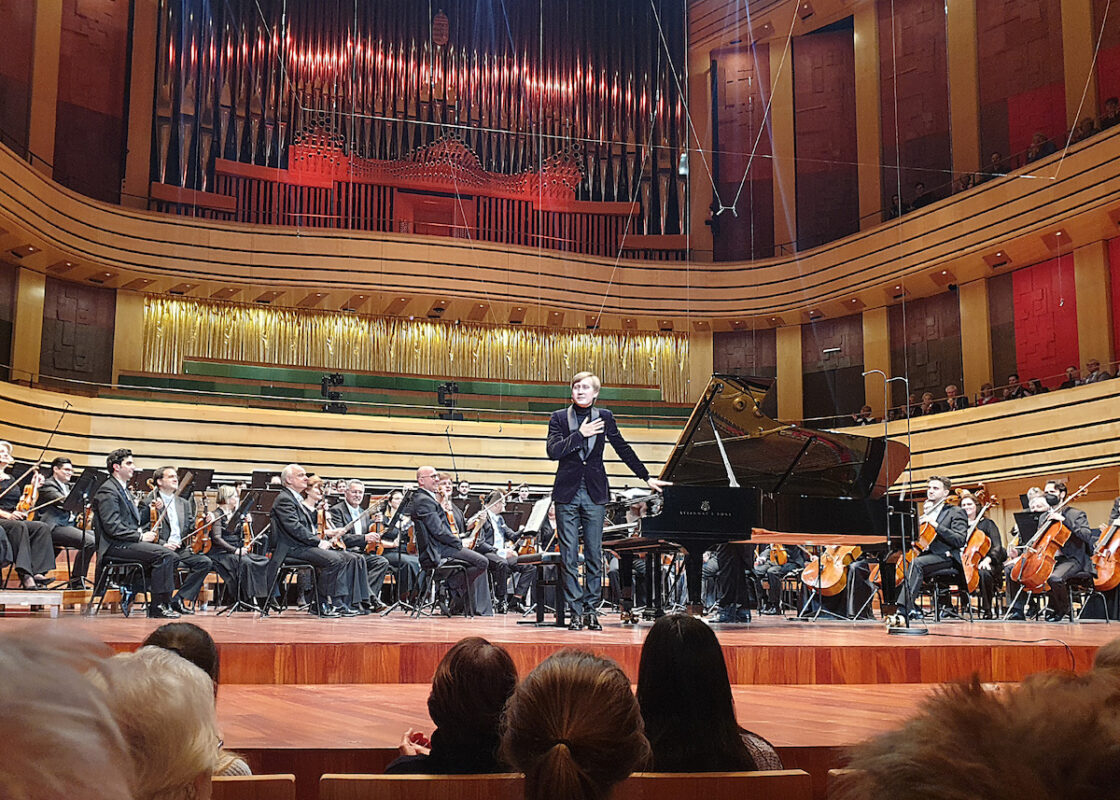Earlier this month, I had the privilege of hearing Dmitry Masleev perform Tchaikovsky’s Piano Concerto No.1 with the Hungarian Radio Symphony Orchestra in Budapest.
It had long been my wish to see Dmitry Masleev live in concert, and this was made even more special by his appearance in Budapest and in the city’s state-of-the-art venue, the Béla Bártok National Concert Hall, which is relatively new (opened in 2002) and is one of the best concert halls in the world.

Indeed, almost from the moment of its inauguration, the concert hall was ranked among the top five in the world. Designed with the feel of a Gothic cathedral, it is located at the heart of the Müpa Budapest complex. The quality of the acoustics are guaranteed by the outstanding work of Russell Johnson, a top specialist who conducted well over fifty years of research in this field and participated in the construction of several top opera houses and concert halls.
“I would not be surprised if, in two or three years’ time, Hungarian musicians say this was the best concert hall in the world.”
Russell Johnson
The first half of the concert comprised Tchaikovsksy’s Piano Concerto No. 1 in B flat minor, Op. 23, with Dmitry Masleev as soloist with the Hungarian Radio Symphony Orchestra under the baton of János Kovács. This is the concerto with which Masleev won First Prize and Gold Medal at the International Tchaikovsky Competition in 2015. He represents the traditions of the Russian piano school and has become one of the world’s most sought-after stars in recent years, and critics highly, and rightly, praise him for his unerring technique and the deep expressive power of his playing.
Just before the second half began, I noticed Dmitry Masleev sneaking into the stalls, wearing a black hoodie – a very different sight from what we had seen on stage earlier – so I aimed to meet him after the concert. Although the corridors were busy with people vacating the auditorium, I managed to stop him outside to congratulate and thank him for his performance.
The second half of the concert featured two symphonic poems: Mussorgsky’s Night on a Bald Mountain (1867) and Tchaikovsky’s Francesca da Rimini, op. 32, the symphonic fantasy after Dante.
Tchaikovsky’s symphonic fantasy recalls the story of a tragic double murder of passion that actually happened. The heroine of the title, who was forced into a loveless marriage by her family for political reasons, conducted a fervent relationship with her husband’s younger brother for nearly ten years. However, the husband found out about the couple and killed them both. The incident became so famous that even Dante included the characters in The Divine Comedy.
The final work was Mussorgsky’s famous symphonic poem Night on Bald Mountain, which I haven’t listened to since my college days! The orchestral fantasy was composed in 1867 based on Gogol’s story St. John’s Eve. Saint John’s Eve and the summer solstice were associated with both profane and ecclesiastical holidays around the world: the darkness was associated with death and decay, and the light with renewal. The Witches’ Sabbath was a popular theme of Romantic music, and Mussorgsky depicts the contrasts of light and shadow quite sensitively in the piece.
Everything about this experience was absolutely wonderful. The most shocking aspect was how cheap the tickets were, so much so that when I was booking the concert, I thought I had surely made a mistake. For excellent seats in the stalls, the ticket price was just € 12.50 (or 5,000 FT)! I’ve never been to a concert of this calibre for so low a price.




Thanks for sharing your unique experience in Budapest. Its inspiring, and your musical background knowledge.